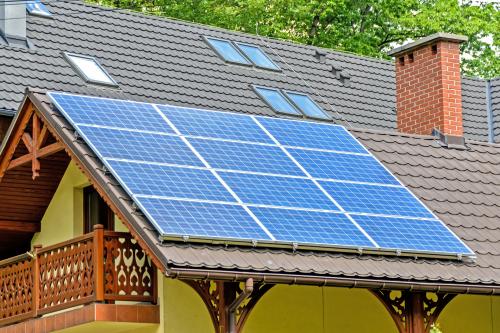Factors to Keep in Mind While Choosing Solar Panels

A solar panel system is supposed to be an effective inter-connected assembly or
array of photovoltaic solar cells known for capturing the energy released from
the sun as photons and then transforming the solar energy straightaway into
electricity. The exact amount of electricity generated in watts or volts would
vary as per the system and the specific kind of solar cell. Let us explore some
critical factors to consider before choosing the best solar panels for your
home, business or commercial use.
Examine
the Solar Panel Efficiency
The efficiency of solar panels is measured in terms of the ratio of the power or
energy present in the sunlight which would be hitting the panel surface
directly to the electrical energy that is produced by the module. For instance,
if the solar panel could capture half the sunlight’s energy, the module
efficiency in such a case would be 50 percent. In real-world situations,
traditional panel efficiencies would be ranging from roughly 12 percent to a
little more than 21 percent. The high efficiency of solar panels is supposed to
be good. Higher efficiency implies increased watts of electricity / sq. the meter
of a solar panel. Hence, with higher efficiency, the solar panel would become
smaller requiring less roof space and offering the same electrical output.
However, high-efficiency panels would be costing more. Remember that your solar
panel efficiency must exceed 15 percent at least. Choose a solar system
Brisbane, with solar panels of high efficiency.
Determine
the Quality of a PV Module
The
quality of solar PV panels isn't easy to gauge right away from the price stated
since sales folks are always a bit biased. The most important thing to do when
you come across a particular product is to seek out reviews from Australian
customers over the years. A large customer base is a good start because it will
give you an idea of how well the panels hold up and perform in several areas
and local conditions. You should also look at reviews that are posted after the owner has gotten a few months of use out of it, to eliminate recency bias and
give things some time to stabilize. You should also scour the internet for
comparison charts and videos of popular solar panel offerings so you can
understand what kind of modules are available to you and what kind of value you
get for your money.
Check
Out the Warranty
Another the big thing you need to look into is the warranty offered by the manufacturer,
the terms of the statement and how well the product conforms to quality
standards and maintenance and support benchmarks. You will need to take a deep
dive into the fine print to figure out if there are any catches in terms of
things they might not cover under the warranty, as well as certain issues for
which you would have to send your modules back to them.
Look
into whether the company adheres to national and international quality
standards and is approved for sale in Australia. You should also have enough
assurance that the company will be around in 10-15 years when you might need a
good service to be performed. A 10-year manufacturer warranty is an absolute
necessity and you shouldn't be fooled by marketing terms like a “30-year
performance guarantee” since they are far from the same thing as a warranty and
mostly just empty assurances.
Conclusion
After
considering the above factors, you could consider the overall aesthetics of the
solar panels. Choose solar panels as per your preference. You could consider
thin-film panels since they look sleek and pretty uniform. Some panels look
bulky because of their lower conversion efficiency.
Post Your Ad Here
Comments